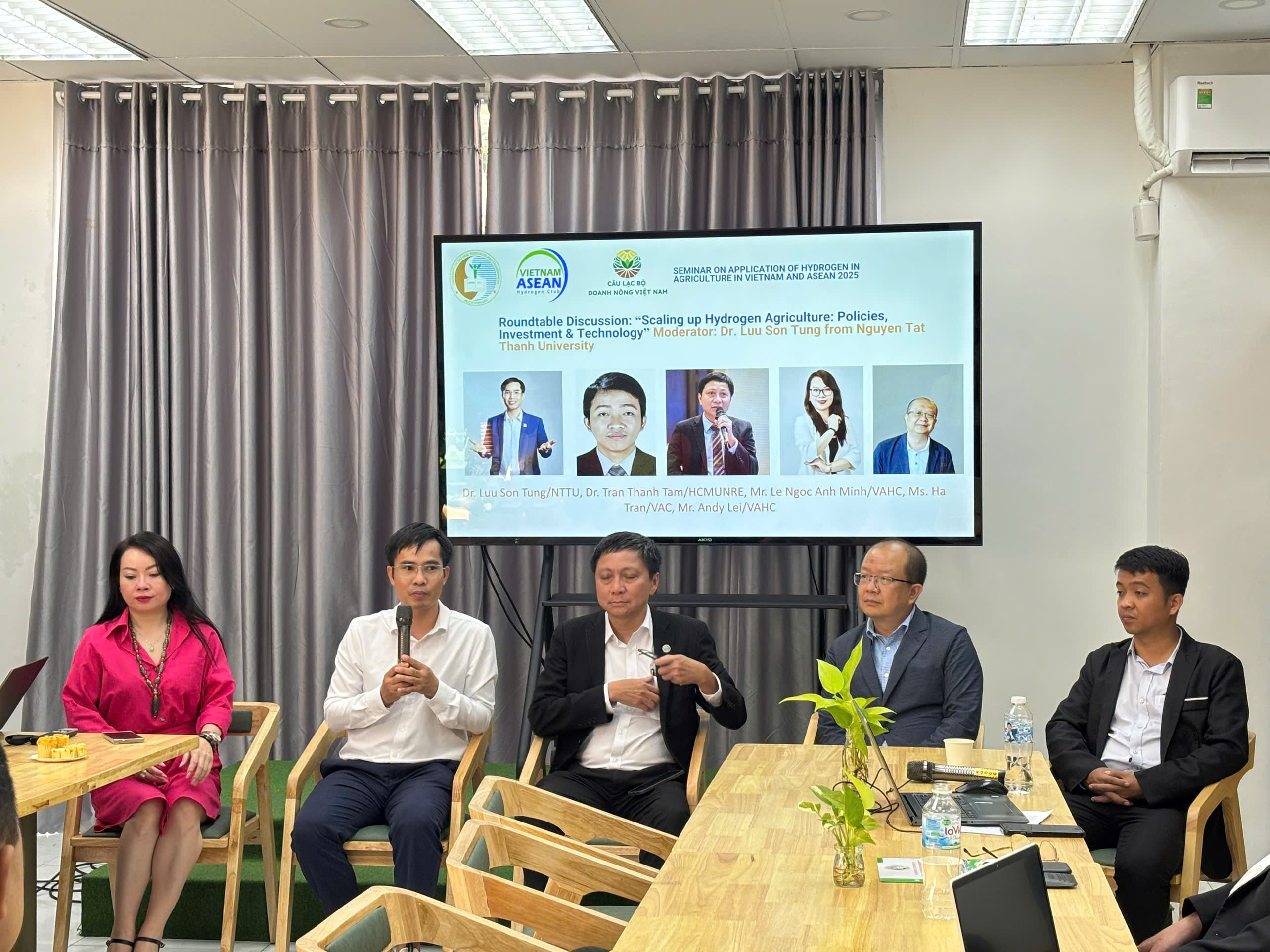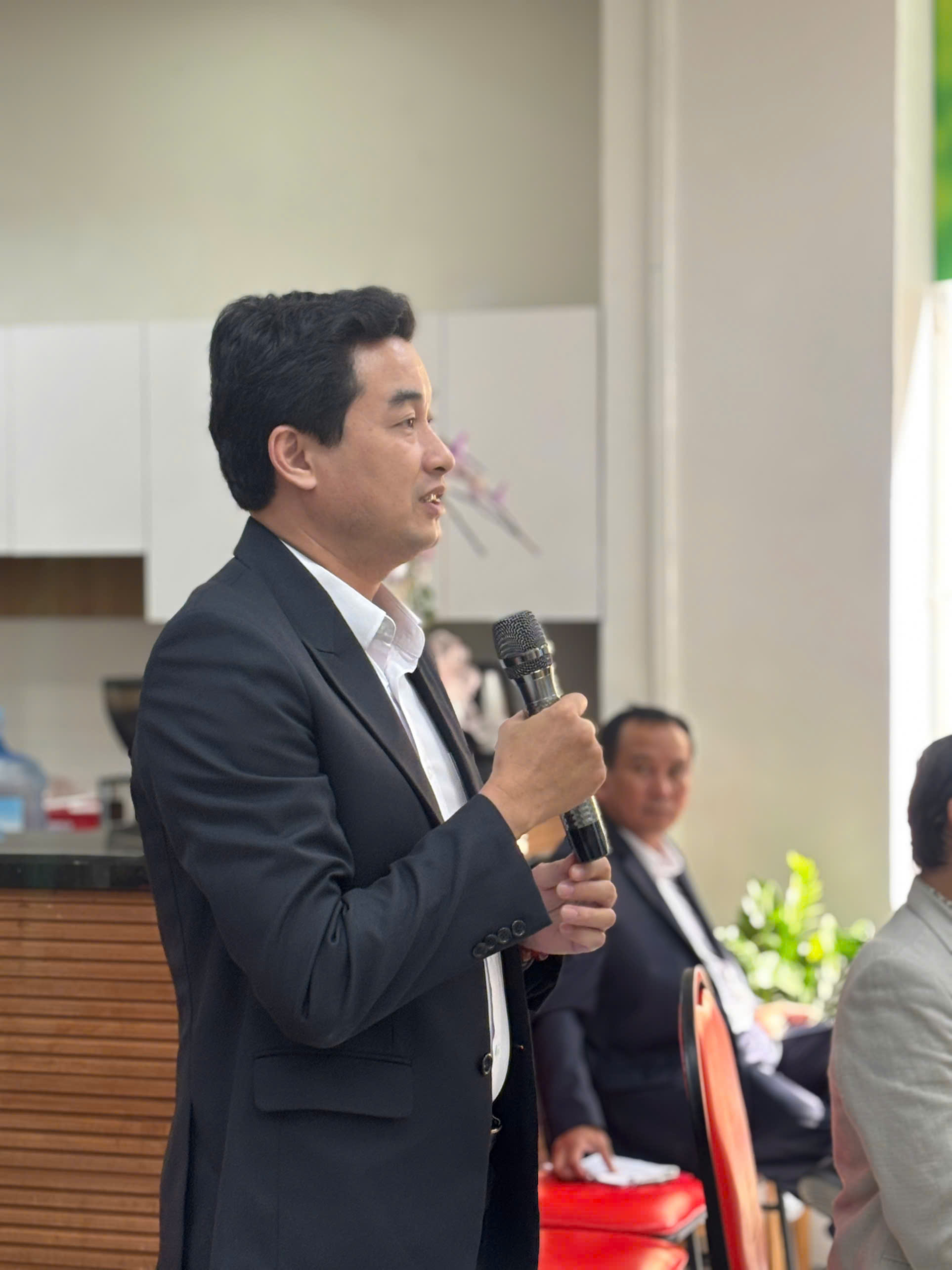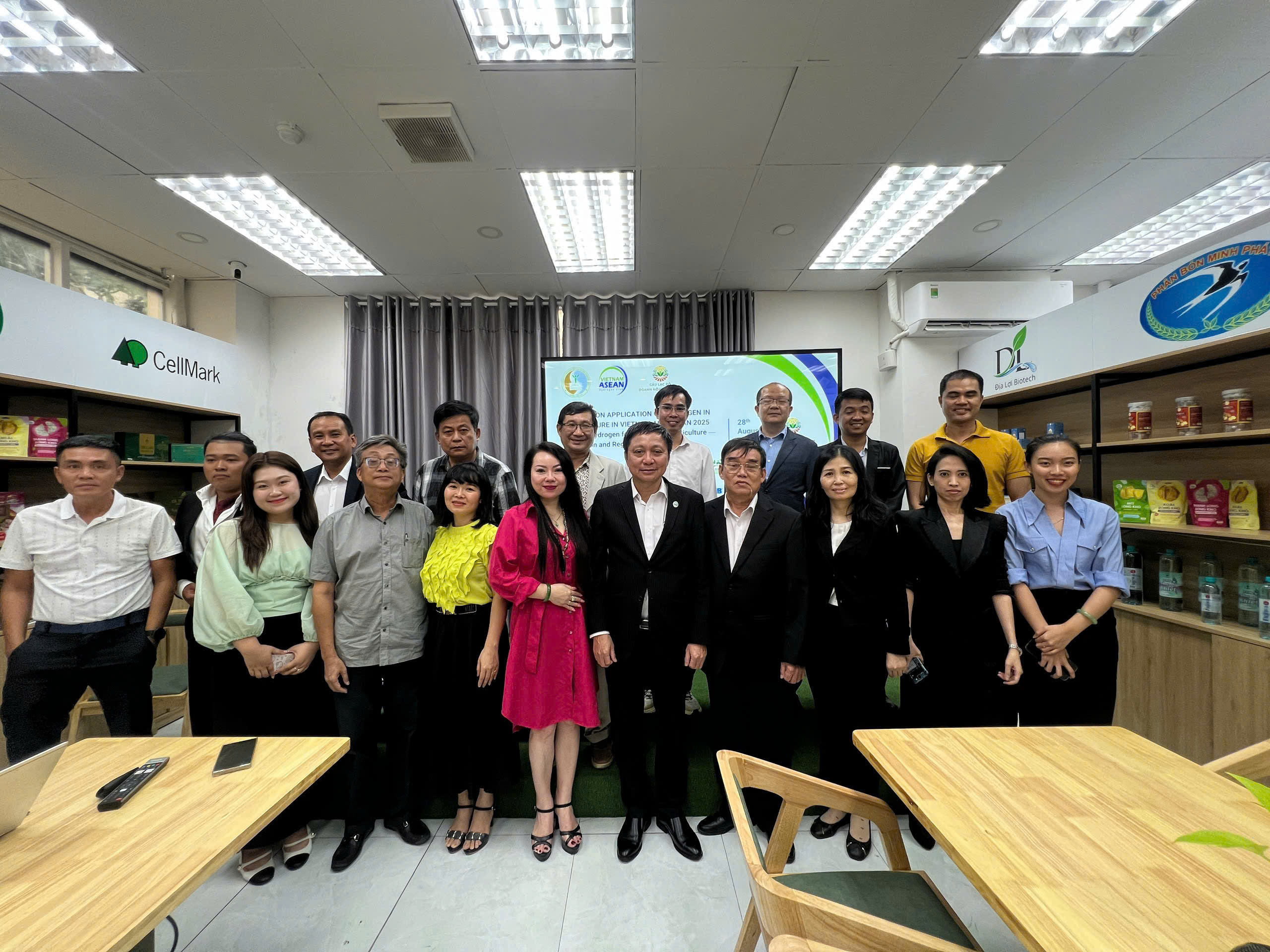Application of Hydrogen in Rice Farming: A Breakthrough Solution for Productivity and Sustainability
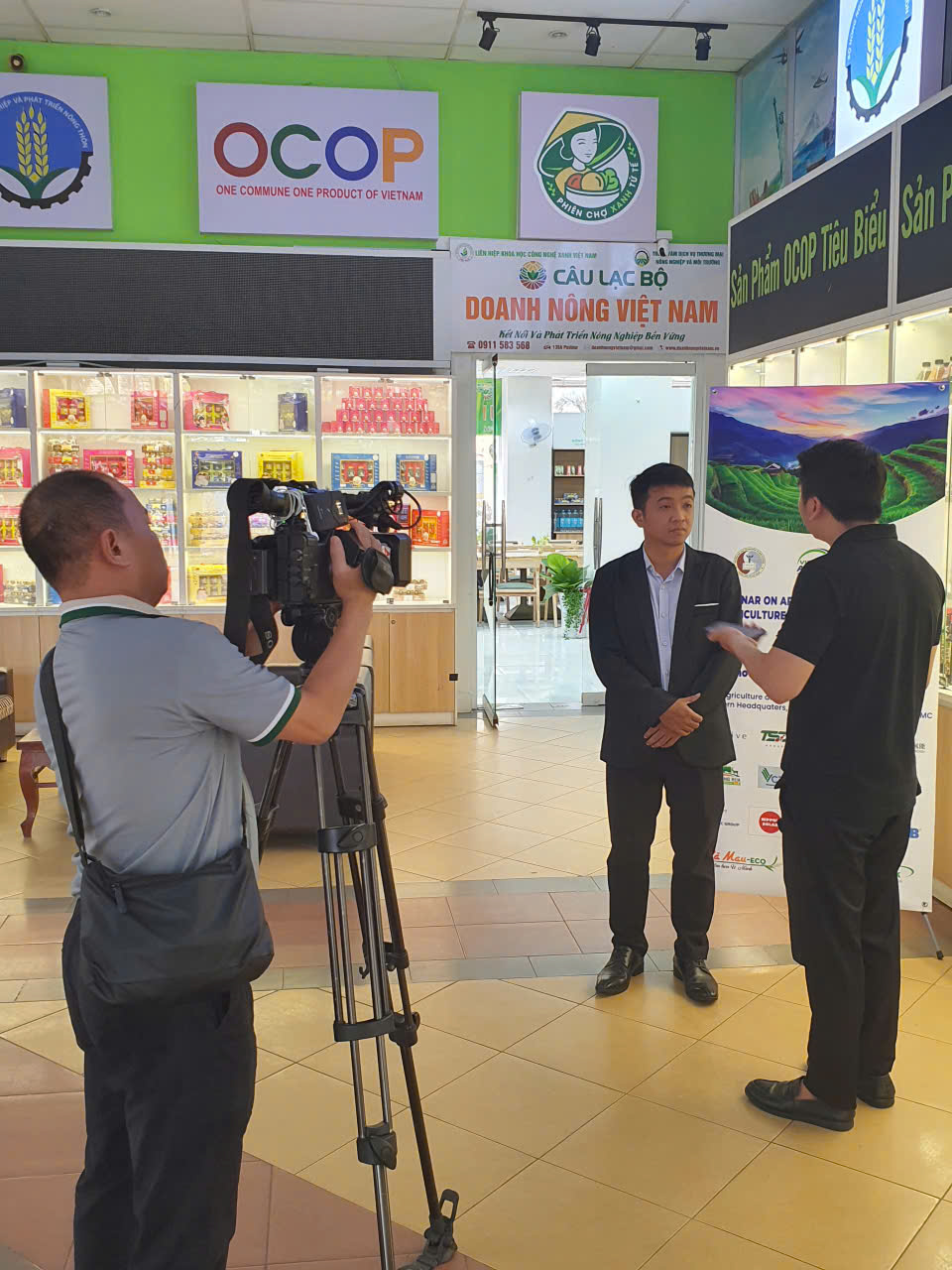
Event: Seminar on Application of Hydrogen in Agriculture in Vietnam and ASEAN 2025
Organizers: Vietnam ASEAN Hydrogen Club, Ho Chi Minh City University of Natural Resources and Environment (HCMUNRE), Vietnam Agribusiness Club (Doanh Nong)
Date: August 28, 2025
Speaker: Dr. Tran Thanh Tam - Deputy Head of Office of International Cooperation and Scientific Research, Ho Chi Minh City University of Natural Resources and Environment
On August 28, 2025, at the Seminar on "Application of Hydrogen in Agriculture in Vietnam and ASEAN 2025", Dr. Tran Thanh Tam delivered a highly anticipated presentation titled "Application of Hydrogen in rice cultivation to increase productivity and improve soil".
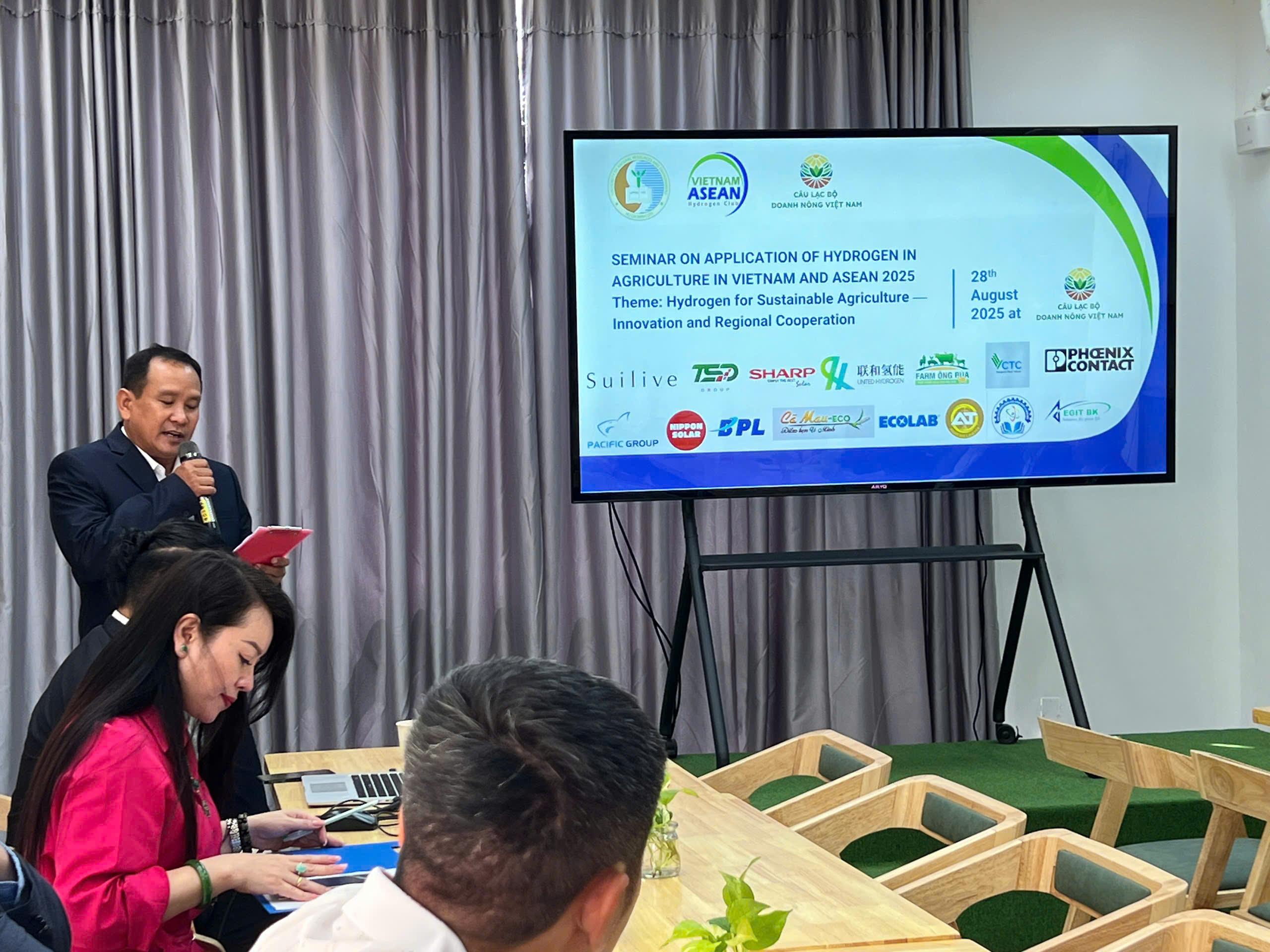
Mr. Nguyen Hoang Hai, Ex sales director at Heneiken Vietnam, member of VAHC was the MC of the Seminar
1. Background and Current Status of Rice Cultivation
Dr. Tam began by highlighting the impressive achievements of Vietnam's rice industry. In 2024, Vietnam exported 9.04 million tons of rice, an 11% increase compared to 2023, thanks to the combination of high-quality rice varieties, applied science and technology, and a flexible market strategy.
However, rice production faces significant challenges:
-
Population pressure: Increasing food demand requires higher productivity.
-
Climate change: Drought, saltwater intrusion, and rising temperatures cause serious declines in yield.
-
Soil degradation: The abuse of chemical fertilizers and pesticides pollutes the soil environment.
-
Heavy metal pollution: Rice plants tend to absorb large amounts of Cadmium (Cd), posing a risk to human health.
The speaker also described the traditional 6-step rice farming process and emphasized the adoption of Alternate Wetting and Drying (AWD) irrigation techniques in the Mekong Delta, which saves 30-40% of irrigation water and reduces greenhouse gas emissions by 41% compared to continuous flooding.
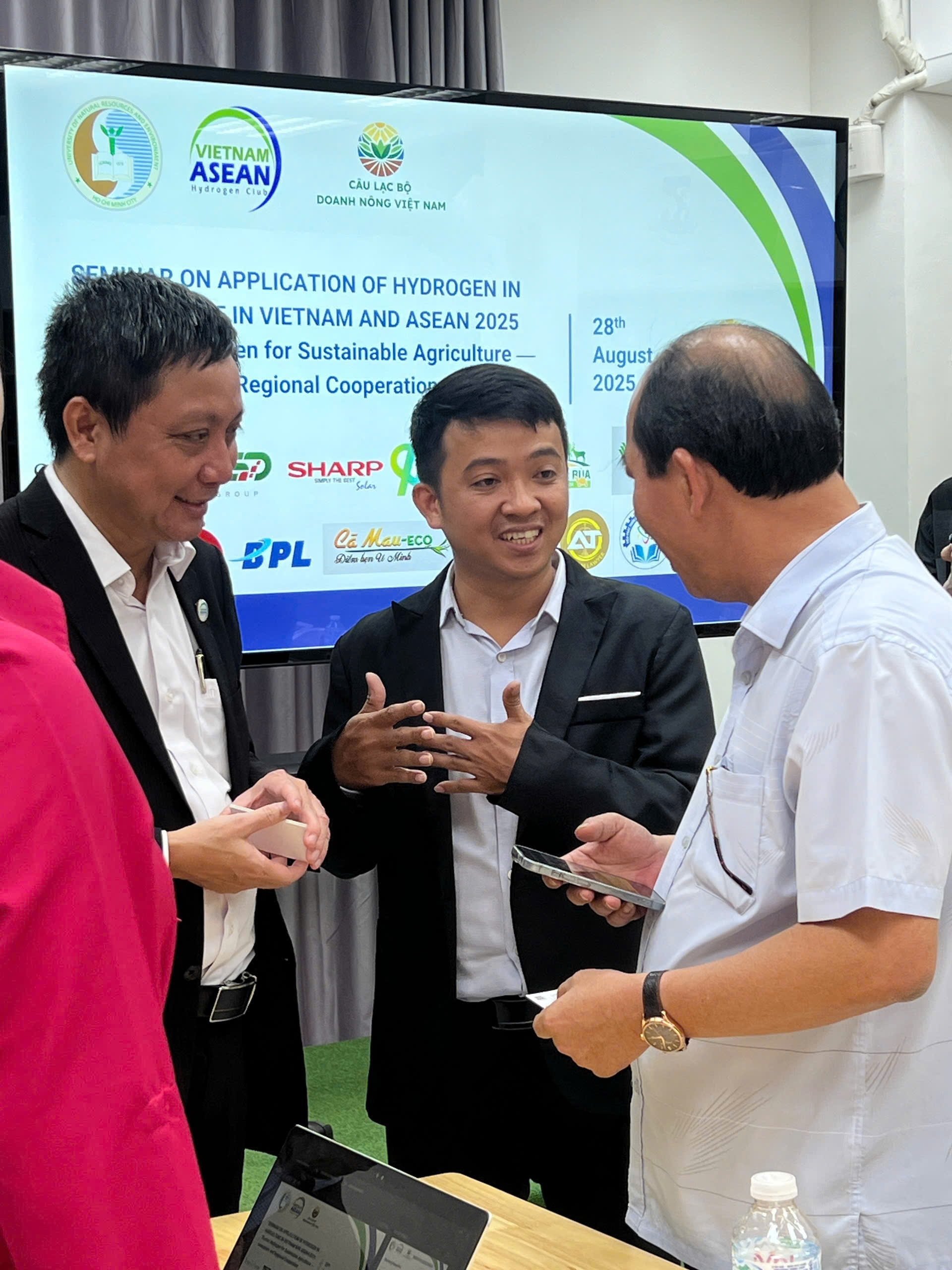
2. Hydrogen (H₂) - A New Biological Agent in Agriculture
Dr. Tam introduced Hydrogen in agriculture as the application of molecular H₂ (usually in water-soluble form) to agricultural production to promote growth, enhance resistance to harmful agents, and improve the quality of agricultural products. He cited international research (from Frontiers journals) showing that molecular hydrogen increases quantitative and qualitative traits of rice grain in field trials.
3. Production Process and Operation of Hydrogen-Rich/Nano Water (HRW/HNW)
The core of the presentation focused on the technology for producing hydrogen-infused water for irrigation. Nanobubble hydrogen generator technology creates tiny air bubbles (<1 μm) containing hydrogen, ensuring the ability to dissolve and retain H₂ gas in water for an extended period.
The soluble H₂ concentration ranges from ~0.1 to ~1.6 ppm (mg/L) and can be maintained for at least 8 hours, with nano-bubble technology (HNW) performing better than conventional hydrogen-rich water (HRW) methods. The U.S. Patent US20230357095A1 for "Hydrogen nanobubbles infused water for industrial crop irrigation" was presented as evidence of the technology's feasibility.
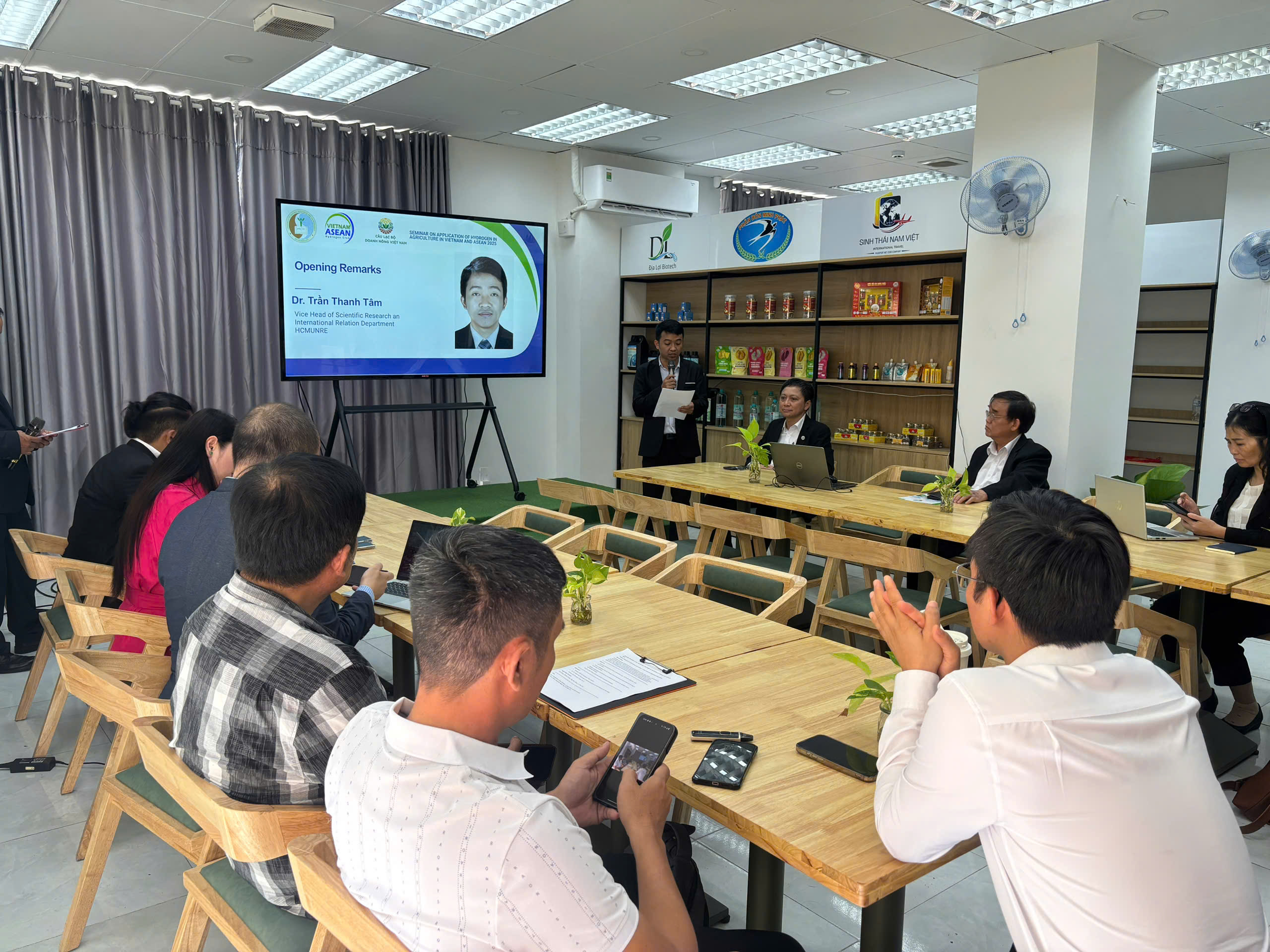
4. Outstanding Advantages of Hydrogen in Rice Farming
Dr. Tam presented the key benefits of using hydrogen-rich water:
-
Increased yield and grain quality: Improvement in both quantity and quality (nutritional content, head rice yield).
-
Enhanced physio-biochemical functions: Supports better early growth of rice plants.
-
Mitigation of heavy metal stress: The application of hydrogen-rich water has been shown to modulate and alleviate the negative effects of Cd and Lead (Pb) stress on fragrant rice, thereby contributing to food safety.
5. Challenges and Future Orientation
Despite its great potential, the widespread application of hydrogen in rice farming still faces challenges related to technology, initial investment costs, and farmer awareness. Dr. Tam concluded by stressing the importance of continued research, technological development, and the establishment of demonstration models to scale up this promising solution in the future, contributing to sustainable agricultural development in Vietnam and ASEAN.
Dr. Tran Thanh Tam's presentation provided a comprehensive and scientific overview, opening up new and promising directions for the rice industry in the current context.
Please reach contact@vahc.com.vn to receive the full presentation of Dr. Tam
